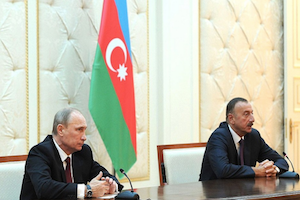Is Armenia's Foreign Policy Changing?
By Natalia Konarzewska
September 25, 2018, the CACI Analyst
August 17 marked the first hundred days in office for Nikol Pashinyan’s government in Armenia, which assumed office after the mass social protests erupting in April and May this year. The leaders of the protest movement underlined that they campaigned for domestic reform, yet the ensuing transition of power followed by a crackdown on corruption and a legal purge among the Armenian political elite has already reverberated in Armenia-Russia relations. Moreover, the new government’s stiff approach towards resolution of the Nagorno-Karabakh conflict has brought renewed tension in its relations with Azerbaijan.
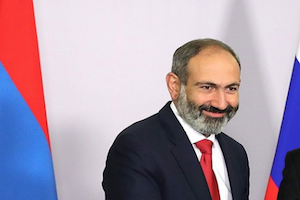
Azerbaijan's Ballistic Missile Dilemma
By Eduard Abrahamyan
August 22, 2018, the CACI Analyst
On June 11, 2018, Azerbaijani state media reported the conclusion of a Belarus-Azerbaijan arms deal, displaying the procured battery-size Polonez Multiple Rocket-Launch systems (MRLS) produced by a Belarus-Chinese military industry company. Azerbaijan’s President Ilham Aliyev inspected the equipment at the new brigade site near Perekeshkul, north-west of Baku. At least five launch vehicles were showcased, each equipped with eight 301mm A200-type high-precision rockets, with a firing range of about 200 kilometers. The new artillery brigade is also equipped with LORA (Long-Range Artillery System) all-weather capability precision ballistic missile systems, with a maximum firing range of 300 kilometers, manufactured by Israeli Aerospace Industries (IAI). The systems were subsequently showcased during a military parade in Baku on June 26.
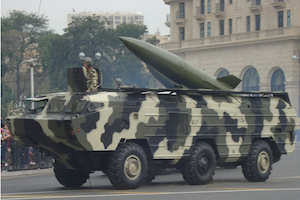
Azerbaijan's Advances Around Nakhichevan
By Emil A. Souleimanov and Huseyn Aliyev
July 5, 2018, the CACI Analyst
In late May, Nakhichevan-based Azerbaijani forces entered no-man’s land to the northwest of the exclave, formally part of Armenia, as deep as 10-15 kilometers. The territory was occupied without a single shot, and represents a physically larger portion of land than that acquired by Azerbaijan as a result of the April 2016 clashes. As the Armenian public was preoccupied with the toppling of the regime of Serzh Sargsyan and the Pashinyan government’s subsequent anti-corruption initiatives, the “silent occupation” of land in Armenia’s Vayotz Dzor province went virtually unnoticed. Since further advances into Armenian territory are likely to force Russia’s response, both sides remain cautious to avoid further confrontations.
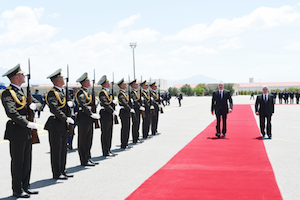
New Southern Gas Corridor Project Will Intensify the Regional Pipeline Race
By Fuad Shahbazov
June 28, 2018, the CACI Analyst
On May 29, Azerbaijan’s President Ilham Aliyev officially inaugurated the first phase of the long-awaited flagship project Southern Gas Corridor (SGC), through which Caspian natural gas from the Shah-Deniz II field will be transported to Europe. The new project consists of several pipeline networks that pass through Georgia and Turkey (via the Trans-Anatolian Pipeline, TANAP) and further through Greece, Albania and Italy (via the Trans-Adriatic Pipeline, TAP). As Shah Deniz Stage 2 is implemented, gas production will increase from 9 to 25 billion cubic meters (bcm) per year.
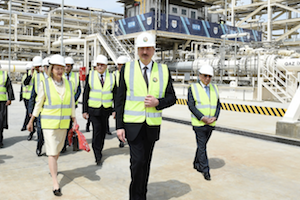
Is Russia's Soft Power Influence Effective? The Case of Azerbaijan
By Nurlan Aliyev
May 21, 2018, the CACI Analyst
On March 16, Sputnik Azerbaijan published information on Azerbaijani participants of the international sport competition Football for Friendship, financed by Gazprom. On the same day, the vice-president of the Italian Senate Linda Lanzillotta, visiting Baku, stated that Russia is behind protests against the construction of the Italian segment of the TAP pipeline. This is one example of how Russia’s means for exercising soft and hard, if covert, power coexist in the former Soviet republics. Yet soft power influences receive decidedly less attention in reporting and discussion on Russia’s relations with these countries and Azerbaijan is an illustrative case in this regard.
